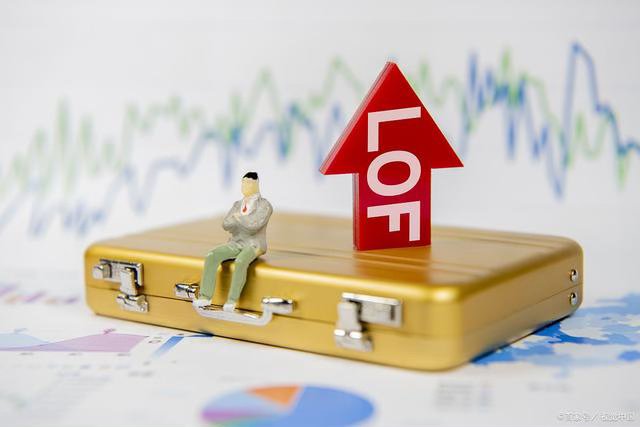How to Trade Currencies with Forex: The Know-How of Foreign Exchange
Oct 22, 2023 By Susan Kelly
Advertisement
Have you ever
wondered how you can make money by exchanging one currency for another? If so, you may be
interested in learning how to trade currencies with forex, which stands for foreign exchange.
Forex is the global market where currencies are bought and sold, and it is the largest and most
liquid market in the world, with trillions of dollars changing hands every day. Forex trading
can be a lucrative and exciting way to diversify your portfolio, tap into the growth potential
of emerging markets, and take advantage of the fluctuations in currency values.
But how
does forex trading work? What are the benefits and risks of forex trading? And what are the best
strategies and tips for forex trading? In this article, we will answer these questions and help
you understand how to trade currencies with forex.
How does forex trading
work?
Forex trading involves buying and selling currency pairs, which are two currencies
that are quoted against each other. For example, the EUR/USD pair represents the euro versus the
U.S. dollar, and the USD/JPY pair represents the U.S. dollar versus the Japanese yen. Each
currency pair has a price, which indicates how much of the second currency (the quote currency)
you need to buy one unit of the first currency (the base currency). For example, if the EUR/USD
price is 1.2000, it means you need 1.2 U.S. dollars to buy one euro.
Forex traders aim to
profit from the changes in the price of currency pairs, by speculating on whether the base
currency will appreciate or depreciate against the quote currency. For example, if you think the
euro will strengthen against the U.S. dollar, you can buy the EUR/USD pair (go long). If you
think the euro will weaken against the U.S. dollar, you can sell the EUR/USD pair (go short).
You can close your position at any time and realize your profit or loss, which is the difference
between the price at which you entered and exited the trade.
Forex trading is done
through online platforms that connect you to the forex market. You can open an account with a
forex broker, who will provide you with the platform, tools, and resources to trade currencies.
You can also access leverage, which is the use of borrowed funds to increase your trading
capital and potential returns. However, leverage also increases your risk and potential losses,
so you need to use it wisely and carefully.
Forex trading is available 24 hours a day,
five days a week, except for holidays. The forex market is divided into four major sessions,
based on the time zones of the major financial centers: Sydney, Tokyo, London, and New York.
Each session has different characteristics, such as liquidity, volatility, and trading volume,
and may offer different opportunities and challenges for forex traders.
What are the
benefits and risks of forex trading?
Forex trading has many benefits, such as:
-
Accessibility: You can start trading forex with a relatively small amount of money, as low
as $50. You can also trade forex anytime and anywhere, as long as you have an internet
connection and a device. You can also choose from a wide range of currency pairs, from major to
minor to exotic, depending on your preferences and goals.
- Diversification: You can
diversify your portfolio by trading forex, as currencies are influenced by different factors
than stocks, bonds, or commodities. You can also take advantage of the growth potential of
emerging markets, by trading their currencies against the developed ones.
- Liquidity:
The forex market is the most liquid market in the world, which means you can buy and sell
currencies quickly and easily, without facing significant price gaps or slippage. You can also
benefit from tight spreads, which are the difference between the bid and ask prices, and low
transaction costs, which are the fees or commissions charged by the broker or the platform.
-
Flexibility: You can trade forex in any direction, whether you are bullish or bearish on a
currency pair. You can also use various strategies, such as scalping, day trading, swing
trading, or position trading, depending on your time horizon and risk appetite. You can also use
various tools, such as technical analysis, fundamental analysis, or sentiment analysis, to
identify and execute your trades.
However, forex trading also has some risks, such
as:
- Volatility: The forex market can be very volatile, especially during times of
economic or political uncertainty, news events, or market shocks. Volatility can create both
opportunities and challenges for forex traders, as it can lead to large price movements, but
also increase the risk of losses.
- Leverage: While leverage can amplify your profits, it
can also magnify your losses. If the market moves against your position, you may face a margin
call, which is a request from the broker to deposit more funds to maintain your position. If you
fail to meet the margin call, the broker may close your position at a loss, and you may lose
more than your initial investment.
- Currency risk: This is the risk of losing money due
to fluctuations in the exchange rates between the currencies you are trading. For example, if
you are trading the EUR/USD pair, and the euro depreciates against the U.S. dollar, your
position will lose value. Currency risk can be affected by various factors, such as interest
rates, inflation, trade balance, monetary policy, and political stability.
- Counterparty
risk: This is the risk of losing money due to the default or failure of the broker or the
platform you are trading with. For example, if the broker goes bankrupt, or the platform
experiences a technical glitch or a cyberattack, you may not be able to access your account or
withdraw your funds. Counterparty risk can be reduced by choosing a reputable and regulated
broker or platform, and by diversifying your funds across different accounts.
What are
the best strategies and tips for forex trading?
Forex trading requires practice,
knowledge, and discipline, to achieve and maintain success. Here are some of the best strategies
and tips for forex trading:
- Choose the right broker and platform: You should do
your research and compare different brokers and platforms, based on their reputation,
regulation, security, fees, features, and customer service. You should also test their platforms
and services, by opening a demo account and trying out their trading conditions, tools, and
resources.
- Create a trading plan and stick to it: You should have a clear and realistic
trading plan, that outlines your goals, risk tolerance, trading style, methodology, and rules.
You should also have a trading journal, that records your trades, results, and reflections. You
should review your plan and journal regularly, and evaluate your performance and progress.
-
Educate yourself and keep learning: You should learn the basics of forex trading, such as
the terminology, the mechanics, the analysis, and the psychology. You should also keep up with
the latest news, trends, and developments in the forex market, and how they affect the currency
pairs you are trading. You should also seek to improve your skills and knowledge, by reading
books, articles, blogs, podcasts, webinars, and courses on forex trading.
- Start gradually
and manage your risk: You should start trading forex with a small amount of money, and with
low leverage, until you gain confidence and experience. You should also use risk management
techniques, such as stop-loss orders, position sizing, and diversification, to limit your
exposure and protect your capital. You should never risk more than you can afford to lose, and
you should always have a risk-reward ratio of at least 1:2, meaning you should aim to make at
least twice as much as you risk on each trade.
- Keep your emotions in check and be
disciplined: You should avoid trading based on emotions, such as fear, greed, excitement, or
frustration. You should also avoid trading based on impulses, hunches, or opinions, without
doing proper analysis and research. You should follow your trading plan and rules, and execute
your trades objectively and rationally. You should also be patient and consistent, and not chase
losses or overtrade.
Conclusion
Forex trading can be a rewarding and enjoyable
way to trade currencies, and to take advantage of the opportunities and challenges in the global
market. However, forex trading also requires practice, knowledge, and discipline, to overcome
the risks and difficulties in the forex market. By following the strategies and tips in this
article, you can learn how to trade currencies with forex, and improve your chances of
success.
FAQs
Q: How can I practice forex trading without risking real
money?
A: You can practice forex trading without risking real money by opening a demo
account with a forex broker or platform. A demo account allows you to trade with virtual money,
using the same market conditions, tools, and resources as a real account. A demo account can
help you learn the basics of forex trading, test your strategies and skills, and familiarize
yourself with the platform and its features.

Triston Martin Nov 07, 2023
Unlocking the Path to Earning Your First Million: Strategies for Ordinary Individuals.

Triston Martin Nov 08, 2022
The Wealthiest of the Web: How American Internet Stars Are Earning Big Bucks

Susan Kelly Nov 23, 2023